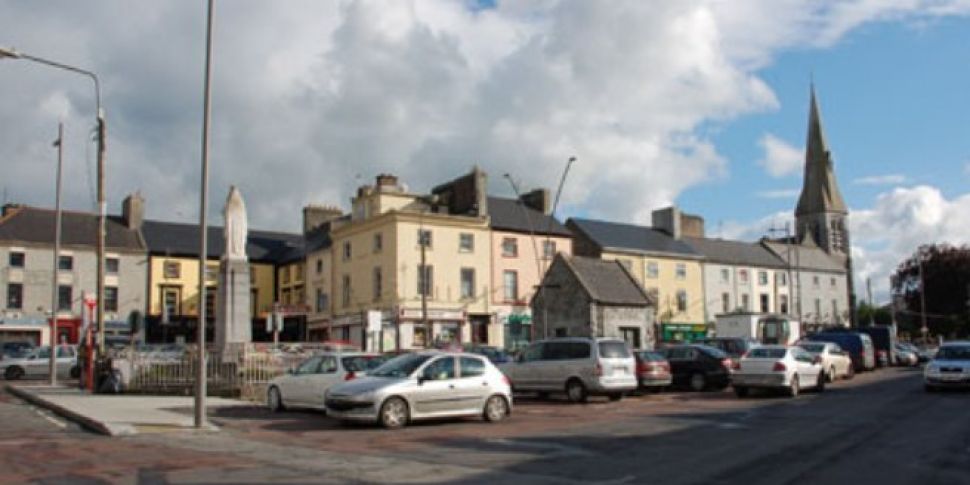This week on The Pat Kenny Show, we're looking at whether or not the economic recovery is being felt in Ireland's towns.
Earlier this week, we saw the problems caused by a lack of investment in schools in Longford Town and yesterday we saw businesses frustrated at planners stifling their efforts.
Now we turn our attention to the challenges ahead for Rural Ireland and how towns outside of Dublin and Cork will drag themselves out of the mire.
I've been travelling across the country and spoke to Pat Kenny this morning about some of the issues.
Is there any optimism that towns around Rural Ireland are on the turn?
It is all too apparent that one of the main challenges ahead is morale.
A lot of people in towns across the midlands, for example, would feel very downtrodden. They’ve seen no improvements in their pockets in the past couple of years while the economy has in headline figures been recovering.
Small Farmers in particular have borne an awful lot of the brunt in the recession.
Last week, I visited Ballymahon cattle mart between Counties Longford and Westmeath to check the pulse of agriculture in the midlands and asked them for their views on the idea that things are getting better.
A lot of them are concerned that there is no way ahead in farming - if you don’t have a massive site or another job on the side.
In the last Budget, we saw efforts made to try to incentivise young farmers to stay in business. For these farmers in Longford and Westmeath, they’re yet to be convinced.
One farmer I spoke to was Sean. His family have been farming for generations but he’s now unsure about whether that can continue.
Have these towns been completely changed by the recession?
That’s a very real risk Pat. Some of these towns have been completely altered by the effects of the recession.
That change in demographics has been acutely felt in Gort, Co Galway.
Before the recession, Gort was held up as this beacon of the future; there were new factories, Brazilians were immigrating in their thousands, up to 35% of the town was Brazilian at the height of it and there was a very real sense that this was the way forward for many smaller towns across the country.
Then the recession hit and according to The Commission for the Economic Development of Rural Areas, Gort was the worst hit town in the country. The Brazilians left. The very landscape of the community was changed forever.
One man whose had the front row seat on that cultural and commnity shift is Colman Keane, the owner of Keane’s of Gort, a hardware store, grocery shop and pub hybrid, the sort of place that used to be the centre of rural towns where you can buy anything from a needle to an anchor.
He says the loss of the Brazilians has been heartbreaking and the town won’t be the same again.
Are there any services trying to keep communities together?
A lot of locals have banded together with groups like Men’s Sheds, trying to keep the sense of community even in places where unemployment has been rampant or jobs are yet to return.
The next big issue is investment. These services are in many cases still being underfunded and cut back when they’re trying to provide a safety net for those worst affected and marginalised by the downturn.
One such service is the Family Resource Centre in Gort which helps some of the most vulnerable people in the community.
What do these areas need to do if they're to come back?
What’s worrying is that some economists believe they never will come back. If you talk to people like Colm McCarthy, they believe things like the Celtic Tiger masked the problems, that people are being drawn to big cities and that now that the recession hit, the towns will never really recover.
If there is to be any hope, more investment is crucial - whether it be in roads, broadband, or jobs.
Some of these towns feel that because they’re not seeing investment or visits from the IDA; because they’re not seeing some of the benefits of schemes like the Wild Atlantic Way or the Greenway or other initiatives - they feel abandoned.
It’s that abandonment which has led some towns to really take it upon themselves to drag themselves out of it.
One such group is the Burren Lowlands group which is run by Fiona O’Driscoll in south Galway. She says the Government let the town down.
Is there any hope in the short term?
What I’ve seen, from the last week, is despite it all and an array of huge challenges - whether they be structural, financial, social or cultural - there is a huge determination to get this right.
That sense of community has been so important which will be back at Christmas when people from Dublin, London, Melbourne and all over the world come back to their hometowns. It always brings a lift. It’s now about keeping that same pride and trying to bottle that on a permanent basis and restoring that heart and soul to towns across rural Ireland.









